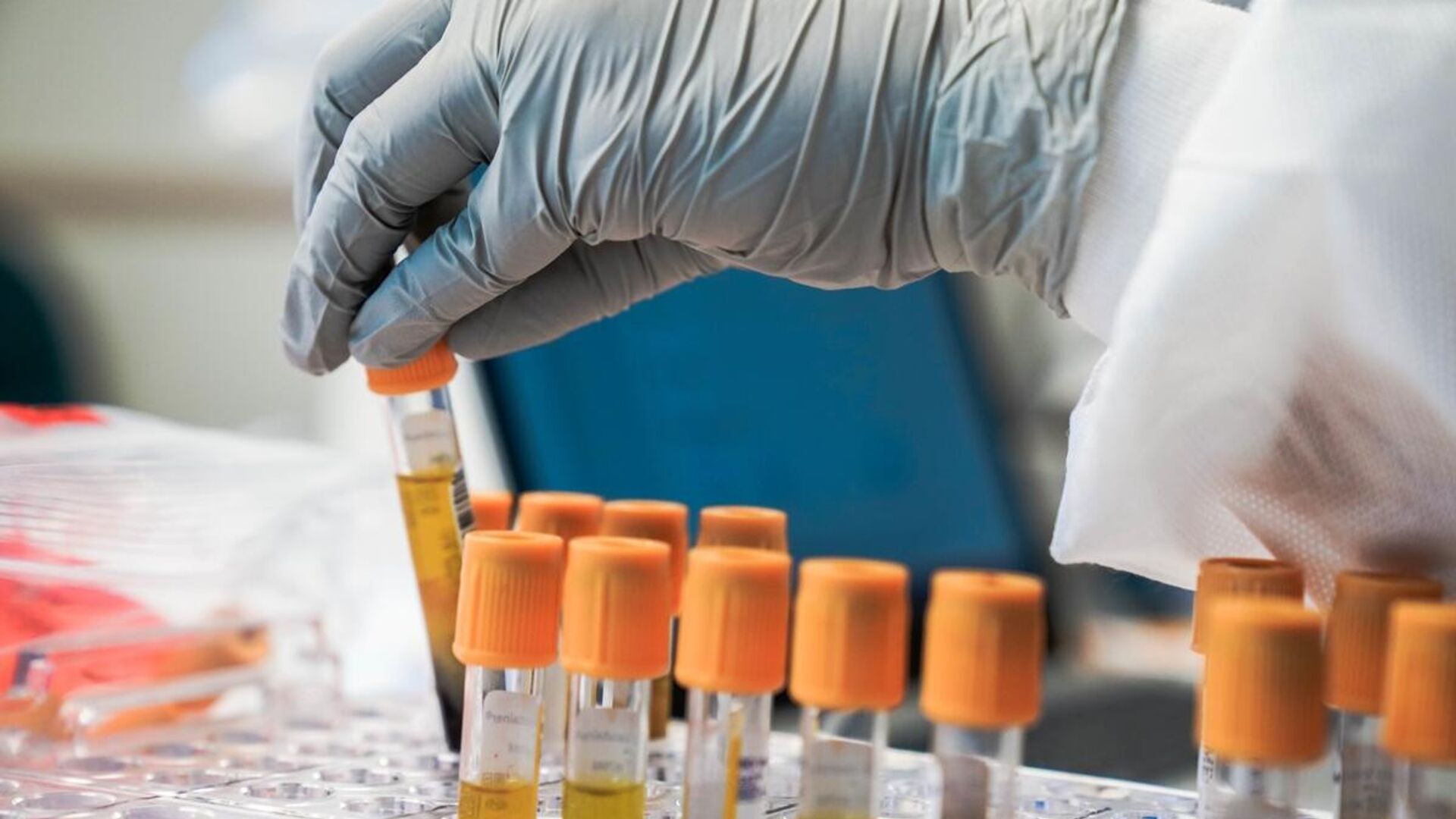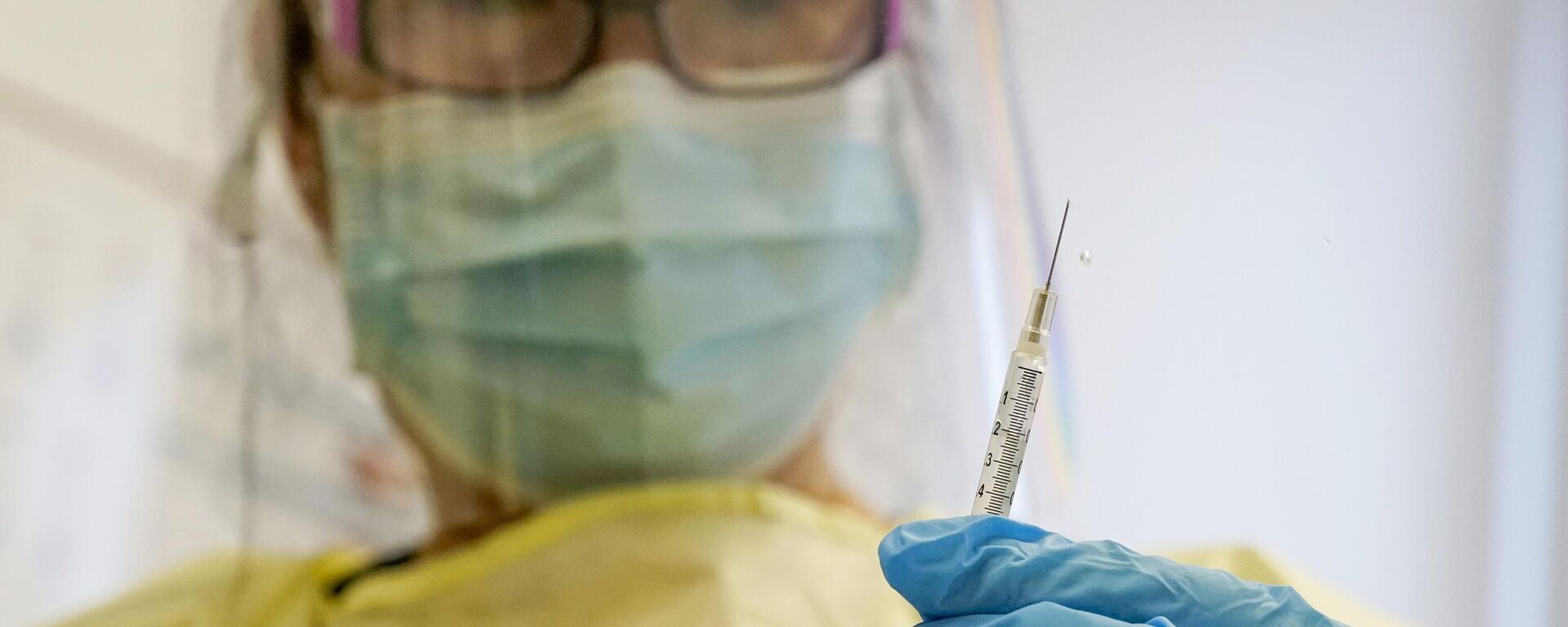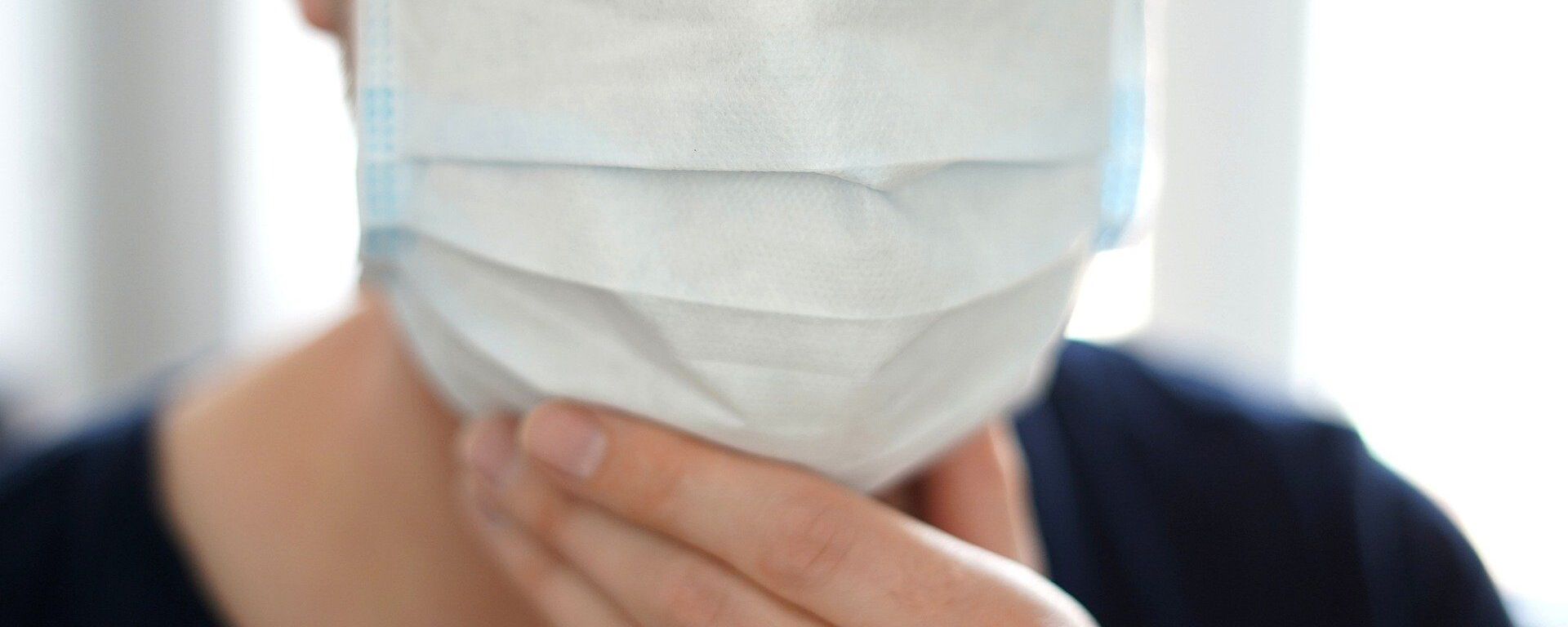https://en.sputniknews.africa/20240426/what-role-can-russia-play-in-strengthening-africas-fight-against-infectious-diseases-1066249674.html
What Role Can Russia Play in Strengthening Africa's Fight Against Infectious Diseases?
What Role Can Russia Play in Strengthening Africa's Fight Against Infectious Diseases?
Sputnik Africa
On April 17-19, the first Joint African-Russian International Conference on Combating Infectious Diseases was held in the Ugandan capital of Kampala, marking... 26.04.2024, Sputnik Africa
2024-04-26T16:43+0200
2024-04-26T16:43+0200
2024-04-26T16:43+0200
opinion
russia-africa cooperation
russia
east africa
uganda
health
healthcare
biotechnology
biomedicine
medicine
https://cdn1.img.sputniknews.africa/img/07e8/01/08/1064522705_0:63:1200:738_1920x0_80_0_0_d955f43b60d6b6f18f336d1c8cd54d87.jpg
There is a critical need for international partnerships in tackling emerging infectious diseases, Dr. Samuel Okware, Director General of the Uganda National Health Research Organisation (UNHRO) and chairman of the first Joint African-Russian International Conference on Combating Infectious Diseases, told Sputnik Africa.He highlighted the conference as a valuable platform for knowledge exchange and exploring innovative technologies. The health expert also expressed gratitude towards the Russian government for their initiative in organizing the event, acknowledging Russia's advanced capabilities in early detection and diagnostics.The conference addressed various challenges faced by African nations, including limited resources and the emergence of new, synthetic pathogens that pose significant biosecurity risks. Dr. Okware stressed the importance of collaboration in developing rapid detection tools and strengthening response capabilities. He also praised Russia's contribution of early detection units and its commitment to fair access to healthcare solutions, referencing the timely provision of Sputnik V vaccines to African nations, including Uganda, during the COVID-19 pandemic.The leading figure in the country's public health also shed light on the unique challenges faced by the continent in implementing effective infection control measures. He identified four key hurdles: early detection and diagnosis, overburdened health systems, and inadequate information sharing, and expertise.Dr. Okware expressed his appreciation for Russia's support in training African personnel in advanced technologies. He proposed expanding these training initiatives and establishing regional centers of excellence to facilitate knowledge exchange and capacity building. He also emphasized the importance of partnerships with Russia, "so for us now to move that to a regional level."The recent African-Russian health conference in Kampala also addressed the challenge of adapting infection control strategies to the diverse healthcare infrastructures across the continent. Dr. Samuel Okware acknowledged the existing regional strategies but highlighted the need for further support, particularly in the areas of technology, training, and pharmaceutical development.The Ugandan health expert stressed the need for "state-of-the-art technologies here to strengthen the African government, to control diseases, which are emerging, and which are re-emerging."Dr. Okware also highlighted the heavy reliance on imported pharmaceuticals in Africa, leading to challenges in affordability, accessibility, and timely delivery of essential medications. He proposed exploring partnerships with Russia to establish local pharmaceutical production facilities, ensuring a more reliable and sustainable supply chain for essential drugs and medical supplies.Dr. Okware concluded by highlighting the potential of Russia's innovative technologies and research breakthroughs to support Africa's efforts to combat infectious diseases, and urged African leaders to prioritize investment in health infrastructure and human resources.
https://en.sputniknews.africa/20240417/russia-africa-cooperation-on-infection-control-to-expand-consumer-rights-watchdog-says-1066111799.html
https://en.sputniknews.africa/20240419/russian-african-infection-control-conference-to-be-held-every-two-years-organizers-say-1066147040.html
russia
east africa
uganda
Sputnik Africa
feedback@sputniknews.com
+74956456601
MIA „Rossiya Segodnya“
2024
Muhammad Nooh Osman
https://cdn1.img.sputniknews.africa/img/07e7/04/0a/1058467512_0:0:1280:1280_100x100_80_0_0_ec723833bcbfcaed2e21952965ad99e4.jpg
Muhammad Nooh Osman
https://cdn1.img.sputniknews.africa/img/07e7/04/0a/1058467512_0:0:1280:1280_100x100_80_0_0_ec723833bcbfcaed2e21952965ad99e4.jpg
News
en_EN
Sputnik Africa
feedback@sputniknews.com
+74956456601
MIA „Rossiya Segodnya“
Sputnik Africa
feedback@sputniknews.com
+74956456601
MIA „Rossiya Segodnya“
Muhammad Nooh Osman
https://cdn1.img.sputniknews.africa/img/07e7/04/0a/1058467512_0:0:1280:1280_100x100_80_0_0_ec723833bcbfcaed2e21952965ad99e4.jpg
russia-africa cooperation, russia, east africa, uganda, health, healthcare, biotechnology, biomedicine, medicine, pandemic, covid-19, vaccine, africa in details, africa insight
russia-africa cooperation, russia, east africa, uganda, health, healthcare, biotechnology, biomedicine, medicine, pandemic, covid-19, vaccine, africa in details, africa insight
What Role Can Russia Play in Strengthening Africa's Fight Against Infectious Diseases?
Muhammad Nooh Osman
Writer/Editor
On April 17-19, the first Joint African-Russian International Conference on Combating Infectious Diseases was held in the Ugandan capital of Kampala, marking an important step in strengthening cooperation between Russia and African countries in combating public health threats.
There is a critical need for international partnerships in tackling emerging infectious diseases,
Dr. Samuel Okware, Director General of the Uganda National Health Research Organisation (UNHRO) and chairman of the
first Joint African-Russian International Conference on Combating Infectious Diseases, told
Sputnik Africa.
He highlighted the conference as a valuable platform for knowledge exchange and exploring innovative technologies. The health expert also expressed gratitude towards the Russian government for their initiative in organizing the event, acknowledging Russia's advanced capabilities in early detection and diagnostics.
"Russia has a lot to offer in terms of technology, a lot to offer in terms of science and expertise, a lot to offer in terms of early detection and a lot to offer in terms of helping us manage data, get data and share data, and also analysis for the early detection of these outbreaks," Dr. Okware said.
The conference addressed various challenges faced by African nations, including limited resources and the emergence of new, synthetic pathogens that pose significant biosecurity risks. Dr. Okware stressed the importance of collaboration in developing rapid detection tools and strengthening response capabilities.
He also praised
Russia's contribution of early detection units and its commitment to fair access to healthcare solutions, referencing the timely provision of Sputnik V vaccines to African nations, including Uganda, during the COVID-19 pandemic.
The leading figure in the country's public health also shed light on the unique challenges faced by the continent in implementing effective infection control measures. He identified four key hurdles: early detection and diagnosis, overburdened health systems, and inadequate information sharing, and expertise.
"We have so much information here," Dr. Okware stated. "But there is no way most of this information to be shared."
Dr. Okware expressed his appreciation for Russia's support in training African personnel in advanced technologies. He proposed expanding these training initiatives and establishing regional centers of excellence to facilitate knowledge exchange and capacity building. He also emphasized the importance of partnerships with Russia, "so for us now to move that to a regional level."
The recent African-Russian health conference in Kampala also addressed the challenge of adapting infection control strategies to the diverse healthcare infrastructures across the continent. Dr. Samuel Okware acknowledged the existing regional strategies but highlighted the need for further support, particularly in the areas of technology, training, and pharmaceutical development.
"We have one regional strategy, and also we have one regional plan of action on a continuous basis. But this has got challenges. Challenges, which are due to the issues of yesterday. Issues of training, issues of technology, issues of lack of capacity for immediate diagnosis. So I think here Russia could help us a lot," he told Sputnik Africa.
The Ugandan health expert stressed the need for "state-of-the-art technologies here to strengthen the African government, to control diseases, which are emerging, and which are re-emerging."
Dr. Okware also highlighted the heavy reliance on imported pharmaceuticals in Africa, leading to challenges in affordability, accessibility, and timely delivery of essential medications.
"All our pharmaceutical drugs are imported [...] If we don't pay for those drugs, we don't get them. And quite often, even when we pay for them, they always come here late," he said.
He proposed exploring partnerships with Russia to establish local pharmaceutical production facilities, ensuring a more reliable and sustainable supply chain for essential drugs and medical supplies.
"We need [...] to adopt technologies which are cheap, which are user-friendly, like the technology that Russia gave us here. They are very, very user-friendly. It's mobile, so you can run to a community with morbidities and make the diagnosis as quickly as possible," Dr. Okware explained.
Dr. Okware concluded by highlighting the potential of Russia's innovative technologies and research breakthroughs to support Africa's efforts to combat infectious diseases, and urged African leaders to prioritize investment in health infrastructure and human resources.




